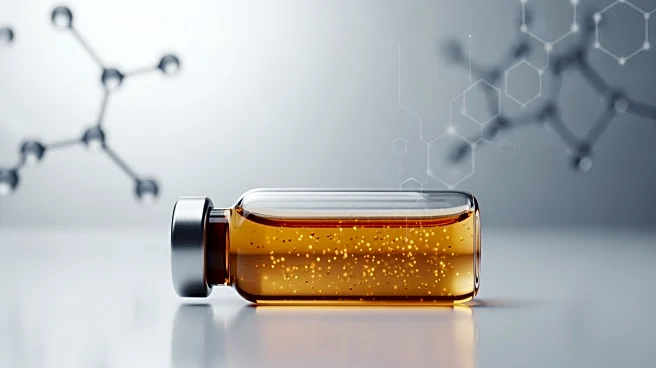What's Happening?
Researchers from Norway and Australia have developed a 'nano-boosted' vinegar solution that significantly enhances the antibacterial properties of acetic acid, the active ingredient in vinegar. By incorporating cobalt-doped carbon quantum dots, the solution was
able to eliminate 99.995% of MRSA bacteria in mouse studies within 24 hours and completely clear infections within a week. This breakthrough offers a promising non-toxic treatment for wound infections and addresses the global challenge of antimicrobial resistance, which is linked to millions of deaths annually. The study, published by the University of Bergen, QIMR Berghofer Medical Research Institute, and Flinders University, highlights the potential of this innovative approach to combat harmful bacteria such as MRSA, E. coli, and Enterococcus faecalis.
Why It's Important?
The development of this nano-enhanced vinegar solution is significant in the fight against antimicrobial resistance, a major global health issue responsible for approximately 4.5 million infection-related deaths each year. Current treatments for bacterial infections are limited, with few new drugs in development. This innovative solution offers a new method to combat bacterial infections without the toxicity associated with traditional antibiotics. The ability to kill bacteria from both inside the cell and on its surface could revolutionize treatment options, providing a safer alternative for human use. The research underscores the need for novel approaches to address the growing threat of resistant bacteria, which poses a serious risk to public health worldwide.
What's Next?
While the study shows promising results in mice, further research is needed to confirm its effectiveness in humans. The researchers suggest conducting future analyses with animals that more closely replicate human skin healing, such as pigs. Additionally, the team plans to explore combination treatments to further curb antimicrobial resistance. The findings may lead to the development of new non-toxic treatments for bacterial infections, potentially saving millions of lives. The researchers emphasize the importance of continued innovation in this field to address the urgent need for effective solutions against resistant pathogens.















